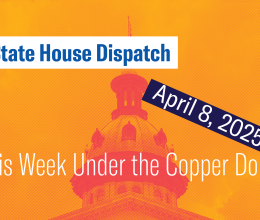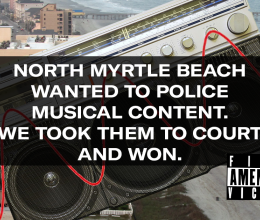
Myrtle Beach Online | By Andrew Shain
South Carolina lawmakers are preparing to tackle bills that would require all police officers statewide to wear clip-on body cameras after a bystander shot a video of a North Charleston police officer fatally shooting an unarmed man.
Equipping officers with body-worn cameras has the support from top politicians, including Gov. Nikki Haley, and state police and legal groups, including the S.C. Law Enforcement Officers' Association, S.C. Sheriffs’ Association and S.C. Bar.
But details need to be worked out.
Issues not addressed in proposed legislation include how long to store recordings, whether officers not on patrol must wear cameras and when videos must remain private to protect victims and informants, law enforcement and legal advocates said.
“When do you turn them on?” said Susan Dunn, legal director for the American Civil Liberties Union in South Carolina. “You need to be consistent or people will say, ‘Why are you recording me now?’ ”
Body-worn cameras on officers will not necessarily prevent another shooting like the one in North Charleston, a law enforcement leader said.
“It’s not a perfect solution,” Richland County Sheriff Leon Lott said. “But we should look for any improvement.”
State Sen. Gerald Malloy, D-Darlington, is the sponsor of a body-worn camera bill that will have a hearing Wednesday before a Senate panel.
Malloy said the cameras could reduce citizen complaints about police officers, who would be more careful while being recorded and get the chance to review footage to learn from their mistakes.
“What we have to do is improve the culture,” Malloy said, adding most officers do a good job. “We don’t want our state on the front of The New York Times, Washington Post and all over the country.”
Bills calling for police to wear body-worn cameras were filed in the S.C. House and Senate in December, sparked by anger over the deaths of a pair of unarmed men at the hands of police officers in Missouri and New York.
The proposals landed in the spotlight again after North Charleston police officer Michael Slager shot and killed Walter Scott after a traffic stop on April 4. A video released three days later contradicted Slager’s claim that Scott had taken his stun gun, leading authorities to charge the officer with murder.
“If [Slager] had a body camera, we don’t know if he would have pulled his weapon,” Malloy said. “[But] I think it changes attitudes.”
Some S.C. law enforcement agencies already are testing body-worn cameras that supplement video recorders mounted in police vehicles.
- The S.C. Department of Public Safety, a Cabinet agency that reports directly to Gov. Haley and includes the Highway Patrol, has bought 58 body-worn cameras and testing started in February, agency spokeswoman Sherri Iacobelli said.
- At least five county sheriff’s departments have some deputies wearing body-worn cameras, said Jarrod Bruder, executive director of the S.C. Sheriffs’ Association.
A big question is the cost.
Outfitting all of Public Safety’s 1,150 officers with body-worn cameras would cost about $2.2 million to set up and $1.5 million a year after that, Iacobelli said.
Sen. Malloy said the state must find a way to pay for the devices.
“We don’t need one county doing it and the one, next to it, not doing it,” he said.
BODY CAMERAS AT GRAND STRAND-AREA POLICE DEPARTMENTS:
- Officers in Conway, Myrtle Beach, North Myrtle Beach and Surfside Beach currently use body cameras.
- Georgetown County Sheriff’s Office recently purchased 25 body cameras, which will be in operation in early May.
- Atlantic Beach Police Department currently is trying out a body camera and expects to request cameras in the town’s next budget, according to Police Chief Tim Taylor.
- Horry County Police Department is in discussions to get body cameras. Lack of funding has prevented the department from investing the technology, according to department spokesman Lt. Raul Denis.
BILL: PROTECTION FOR BYSTANDERS FILMING POLICE
A state bill introduced Tuesday would protect bystanders who videotape or photograph police officers.
If passed, S.C. officers could not block a camera, arrest or threaten a bystander or seize a camera without permission or a warrant, according to the bill’s sponsor, state Sen. Gerald Malloy, D-Darlington.
Violations would be a misdemeanor, punishable by up to three years in prison. Bystanders filming police could not obstruct officers from performing their job.
The bill comes after Feidin Santana shot the video that showed North Charleston office Michael Slager fatally shoot Walter Scott in the back on April 4. Santana’s video contradicted Slager’s version of events, leading authorities to charge the officer with murder.







